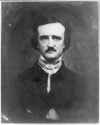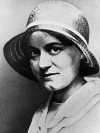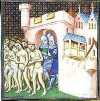 Famed poet and writer Edgar Allan Poe considered his 1848 essay “Eureka” to be his career masterpiece. Though described as a “prose poem” by Poe, who wished it to be viewed as art, the work is also a notable scientific and mystical essay unlike any of his other works and includes a cosmological theory that touches on black holes and the big bang theory about 80 years before the 2 subjects gained widespread recognition. Poe claimed “Eureka” was more important than what major scientific discovery? Discuss
Famed poet and writer Edgar Allan Poe considered his 1848 essay “Eureka” to be his career masterpiece. Though described as a “prose poem” by Poe, who wished it to be viewed as art, the work is also a notable scientific and mystical essay unlike any of his other works and includes a cosmological theory that touches on black holes and the big bang theory about 80 years before the 2 subjects gained widespread recognition. Poe claimed “Eureka” was more important than what major scientific discovery? Discuss
Source: The Free Dictionary
 The first Oktoberfest was held as a horse race celebrating the wedding of Crown Prince Ludwig of Bavaria to Princess Therese von Saxony-Hildburghausen. In the years that followed, the race was combined with the state agricultural fair, and food and drink were offered. Since that time the 16-day festival has become, above all else, a celebration of German beer, drawing more than five million attendees annually. How many millions of liters of beer did Oktoberfest attendees consume in 2007?
The first Oktoberfest was held as a horse race celebrating the wedding of Crown Prince Ludwig of Bavaria to Princess Therese von Saxony-Hildburghausen. In the years that followed, the race was combined with the state agricultural fair, and food and drink were offered. Since that time the 16-day festival has become, above all else, a celebration of German beer, drawing more than five million attendees annually. How many millions of liters of beer did Oktoberfest attendees consume in 2007?  On this day in 1968,
On this day in 1968,  Born into an observant Jewish family, Stein converted to Christianity in 1922. After studying philosophy, she became a nun in 1934. She moved from Germany to the Netherlands to avoid Nazi persecution, but in 1942 she was arrested because of her Jewish heritage. She was sent to the Auschwitz concentration camp and died in the gas chamber that year. She was canonized by Pope John Paul II in 1998 and is also known as Saint Teresa Benedicta of the Cross. With what miracles is Stein credited?
Born into an observant Jewish family, Stein converted to Christianity in 1922. After studying philosophy, she became a nun in 1934. She moved from Germany to the Netherlands to avoid Nazi persecution, but in 1942 she was arrested because of her Jewish heritage. She was sent to the Auschwitz concentration camp and died in the gas chamber that year. She was canonized by Pope John Paul II in 1998 and is also known as Saint Teresa Benedicta of the Cross. With what miracles is Stein credited?  The Cathars were members of a Christian sect that flourished in France in the 12th and 13th centuries. Because most adherents believed in reincarnation—as opposed to resurrection—as a way of reaching the pure spirit realm, the Roman Catholic Church regarded the sect as heretical and launched the Albigensian Crusade to crush the movement. In one account of a massacre of some 20,000 Cathars, one of the crusade’s commanders is asked how to tell Cathars from Catholics. What was his famous reply?
The Cathars were members of a Christian sect that flourished in France in the 12th and 13th centuries. Because most adherents believed in reincarnation—as opposed to resurrection—as a way of reaching the pure spirit realm, the Roman Catholic Church regarded the sect as heretical and launched the Albigensian Crusade to crush the movement. In one account of a massacre of some 20,000 Cathars, one of the crusade’s commanders is asked how to tell Cathars from Catholics. What was his famous reply? .jpg) In 1961, US President John F. Kennedy committed the US to the goal of landing astronauts on the Moon and bringing them safely back to Earth by the end of the decade. The resulting Apollo program is said to have been the largest scientific and technological undertaking in history. The project’s first successful manned mission was Apollo 7, which paved the way for the Moon landing less than a year later. What caused tension between the flight crew and mission control during Apollo 7?
In 1961, US President John F. Kennedy committed the US to the goal of landing astronauts on the Moon and bringing them safely back to Earth by the end of the decade. The resulting Apollo program is said to have been the largest scientific and technological undertaking in history. The project’s first successful manned mission was Apollo 7, which paved the way for the Moon landing less than a year later. What caused tension between the flight crew and mission control during Apollo 7?